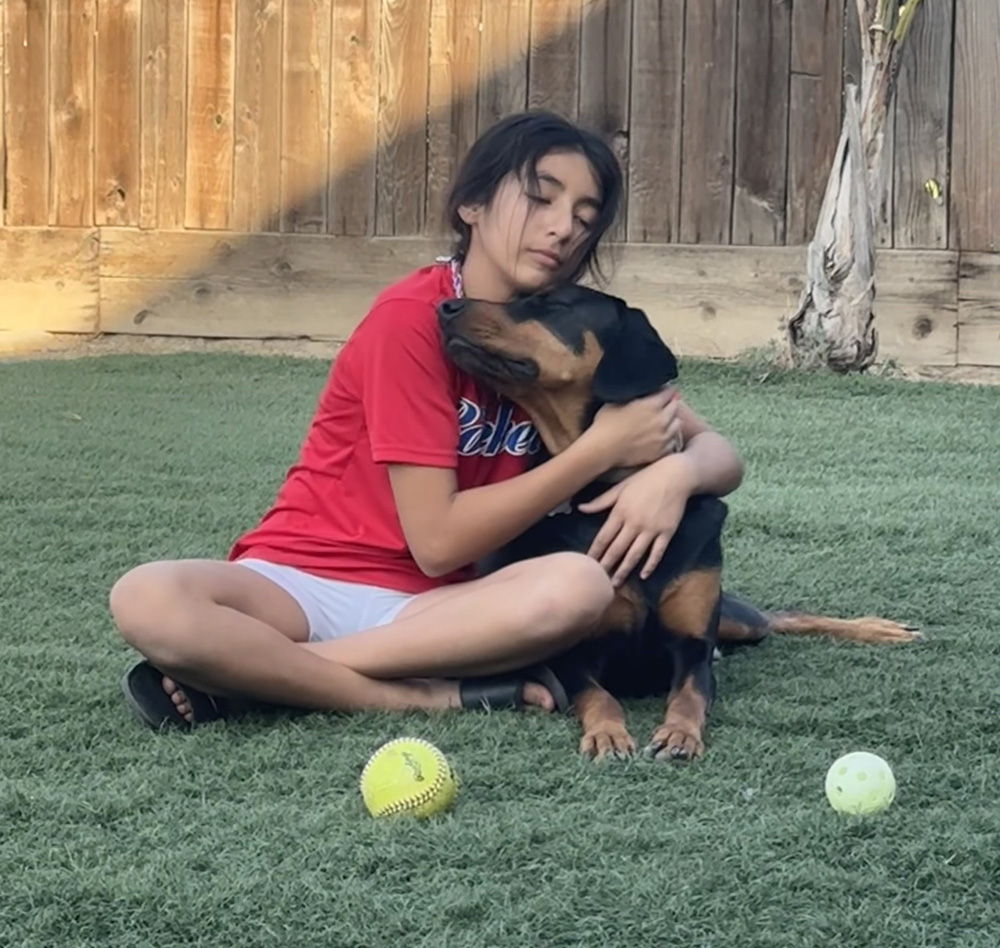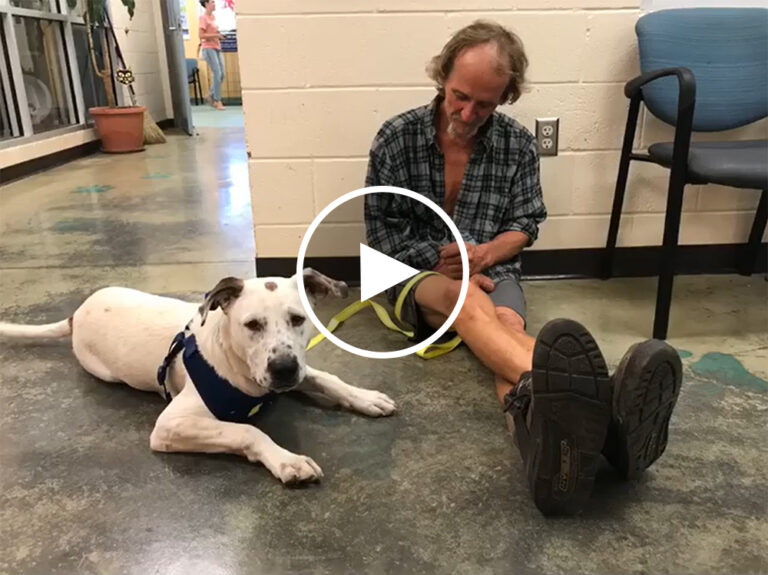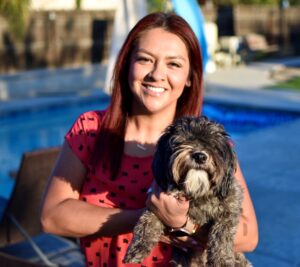…more Unity
Three Questions That Gave Me Courage to Change
As part of our More Pets and People Together campaign, we’re asking community members inside the shelter and out, “What do communities look like when we’re stronger side by side? What does More Pets and People Together mean to you?” Together we’re envisioning and creating communities that keep and bring pets and people together, places rooted in mutual care, joy, and connection, where everyone belongs.
RVT and former shelter manager Ivy Ruiz reflects on what gave her courage to positively disrupt the status quo when change didn’t seem possible.
As a shelter manager, I kept my office doors open—one led to the public lobby and another to the front office—but this time I shut them both. I had to melt down where no one could see, in the comfy chair next to the bowl of peppermint patties that everyone set aside, next to the clock that ticked all day but never got the time right. I brought my knees to my chest, buried my face, and cried.
That afternoon, a woman had walked into the shelter to reclaim her dog, a Chihuahua Terrier mix, and staff explained the policy: if she couldn’t pay the reclaim fees, her dog would have to stay at the shelter. When I was pulled in as the supervisor, I could only say the same.
I thought I knew what would happen next, because it happened again and again. People would make it all the way across town to reclaim their pets, sometimes by taxi, bicycle, borrowed car, or even by foot. Like other shelters, ours was on the outskirts, far from any bus stop. But without enough money to pay the fees—which accumulated quickly to hundreds of dollars and could include daily boarding fees, civil penalties, impound, license, and vaccine fees, all set at the city level—folks would have to leave empty-handed.
Sometimes they would threaten me or another staff member, or throw pens or clipboards at the glass between us. We were on the other side of the desk, but we felt the same emotions: anger that things couldn’t be different, frustrated that we were caught in the middle, sad that people in our community thought we were heartless.
Who could blame them? Often it felt like we were holding their dear family member hostage.

Ivy's daughter Xani hugs her dog Renzo
If we weren’t sending a pet home with their family, that meant more nights waiting at our facility, putting that pet and others at risk of disease, and causing families like this one a great deal of pain and trauma.
Ivy Ruiz
But when I told the woman she couldn’t take her dog home, she didn’t get angry. She cried. She pleaded. “I’m a single parent with three kids,” she said. “I’m doing my best.”
She refused to let me or this policy define her or her pet’s destiny. These fees were created for a family with double her income, she said, with a salary more than minimum wage. And if her family didn’t exactly fit that mold, it didn’t mean that they were less deserving of bringing their dog home.
My heart broke and kept breaking in my office after she left without her dog, because she was right: There is no such thing as being too poor to love pets. Ours wasn’t an affluent community—even families with two incomes struggled. Her dog would wait at our shelter for several days or even weeks while fees continued to add up, until the only option for her and all the folks in the same situation was to surrender their pet permanently to the shelter, because that fee was more affordable than taking them back to the home they knew.
I was tired of setting community members, animals, our shelter and my staff up for failure. If we weren’t sending a pet home with their family, that meant more nights waiting at our facility, putting that pet and others at risk of disease, and causing families like this one a great deal of pain and trauma. It also meant higher costs to house, feed and care for animals who already had homes—and people who missed them and loved them the way they wanted to be loved. Despite all this, city officials refused to change a policy that, in their eyes, generated revenue.

This powerful video from Memphis Animal Services shows the magic that happens when best friends reunite—and why fees shouldn't stand between them.
My office clock ticked on, adding up all the harm I’d caused by enforcing fees and policies designed years ago, ones that no longer—or had never—served my community. Watching this play out with family after family harmed me too. It strained my mental health and made it harder to see clearly or feel empathy.
I opened my door and asked the front office assistant to call the woman back and tell her she could pick up her dog, no cost. The minute he saw her, he whimpered and wagged his tail. She kneeled down, and the dog came running.
My staff and I never looked back. Sometimes we could waive all fees without drawing attention, sometimes we could waive partial fees, and sometimes we couldn’t waive any, which is when we would scramble to cover the tab. If we had to chip in to get a pet home, we did.
It’s been years since I sat in that office, afraid of putting my job on the line by going against a policy I’d been told to follow and deciding, again and again, to do it anyway. Today, more and more shelters are fighting against unfair and ultimately unsuccessful policies and winning. They are positively disrupting systems that don’t serve anyone. At the time, I knew if I couldn’t find the courage to do what was right moving forward, I’d have to find the courage to leave this profession.
My window faced the public parking lot, but that first afternoon as I waited for courage, I didn’t notice the woman in her car, waiting too. She’d stayed in the lot the whole time; staff told me later. Maybe some part of her was unable or unwilling to leave, not without her dog.
Instead, I watched a nest that, one spring, a mama bird had built for her babies. Each year, sometimes twice, the birds returned to the comfort and safety they’d found in that spot.
Instead, I was asking myself the questions I want to ask you now.
Why can’t the shelter offer the same sense of comfort and safety for all people in our community?
What if communities refused to set expensive reclaim fees—or changed them—knowing that most of us would not be able to afford them?
What if, together, we refused to lose sight of what pets mean to their people?
Read more about what we can all do to rethink reclaim fees and help pets get back home.


